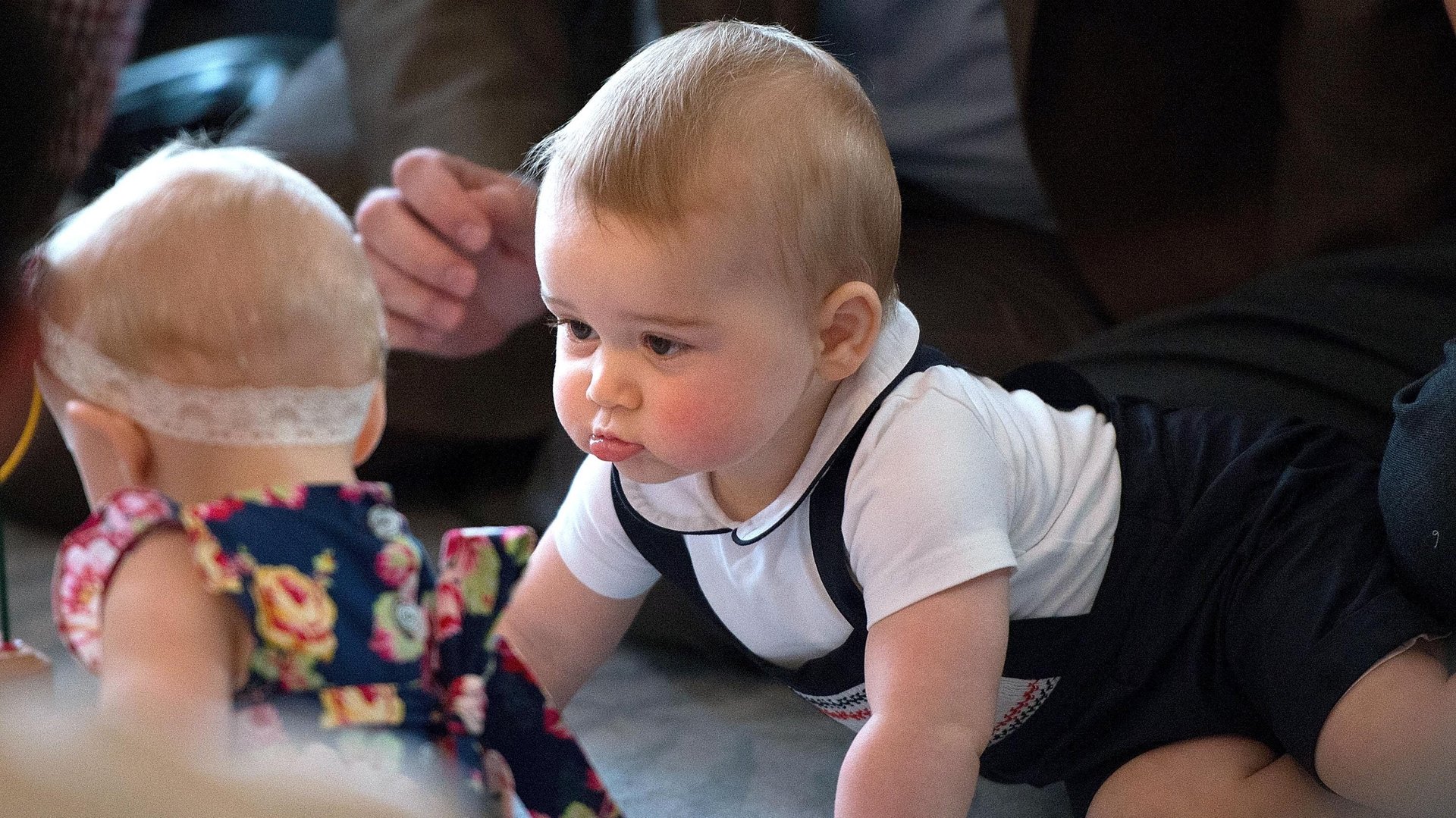Brexit is causing an au pair shortage in Britain
Uncertainty tied to Brexit is scaring some businesses away from the UK—and now it seems to be having the same effect on au pairs.


Uncertainty tied to Brexit is scaring some businesses away from the UK—and now it seems to be having the same effect on au pairs.
Rebecca Haworth-Wood, chair of the British Au Pair Agencies Association (BAPAA), says applications have dropped since the 2016 Brexit referendum. She cites her own agency, A2Z Au Pairs in Somerset, as an example. Applications have fallen 70% since the referendum, and the biggest drop was recorded right after the vote.
Britain does not have an official register of au pairs, but according to some estimates there may be as many as 100,000 in the country at any one time, and most of them are from Europe.
“It’s not that we can’t have them here and they’re not still welcome,” says Haworth-Wood, “it’s that they’re thinking actually, ‘is there somewhere else I can go?’ A lot of them are going to Australia, New Zealand, America, to improve their English. The indecision is putting them off.”
The reference to Brexit-related indecision is striking. Like almost every other sector in the United Kingdom, the au pair trade is in limbo until October 31, 2019. That’s the date on which, come hell or high water, Boris Johnson’s government has said the UK will leave the European Union (EU). Industry leaders say they are unsure how a no-deal Brexit will affect au pairs, who are temporary workers and benefit from a special status.
Currently, any EU citizen can come to the UK as an au pair. They work about 30 hours a week. In exchange, they make up to £100 ($124) a week in pocket money, get to they practice their English, learn about British culture, get free room and board, and sometimes travel with the family for whom they work. Citizens of eight “Tier 5” countries—a diverse list that includes Japan, Monaco, and Taiwan—can also come to the UK as au pairs. But Tier 5 applicants need special visas, which cost £244 ($301), and are part of the government’s Youth Mobility Scheme.
A dip in au pair applications from the EU is likely to worsen the existing deficit of affordable, accessible, quality childcare options in the UK. Au pairs fill a crucial gap for working parents who need the support and flexibility provided by a live-in caregiver but can’t afford a full-time nanny. An experienced nanny can expect to earn £50,000 ($62,170) a year on average; the median household disposable income in the UK in the accounting year ending April 2019 was £29,400 ($36,540).
“I’ve got families who have to make alternative arrangements for childcare because they just can’t rely on the fact that an au pair will be available,” says Haworth-Wood. “I have had people who’ve changed their work patterns, their jobs, etc, because an au pair is so important to them.”
European au pair agencies also see a shift in their applicants’ preferences. Elena Fernández de Pinedo runs the Au Pair Idiomas agency in La Rioja, Spain. She says applicants now frequently turn down interview offers with UK families because of worries that they might face administrative difficulties in Britain, or that Britons will be unfriendly to them. Some of them change their minds, she adds, but most of those who don’t end up going to Ireland.
All parts of the UK don’t seem to be equally affected by the shortage of au pairs. Ruth Campbell, director of Au Pair Ecosse in Scotland, says Brexit has barely affected her numbers. She thinks the 10% decrease in European au pair applications is in line with the general Brexit-related drop in migrant workers coming to Scotland across all sectors. Campbell says she hopes au pairs would choose Scotland over England because “people see Scotland as much more EU-friendly.”
Both Campbell and Haworth-Wood say major geopolitical events, like the 2017 terrorist attack in Manchester, have often lead to a drop in au pair applications. But the effect typically fades after a few months. That of Brexit, hasn’t.
While they wait to find out what will happen to au pairs after Brexit, agencies and activists are organizing around one theme: Save Au Pairs. In 2018, BAPAA and other agencies launched the Save Au Pairs Campaign and started a petition that has been signed by close to 23,000 people. They have asked for a widening of the Youth Mobility Visa to include all nationalities, with a specific au pair sub-category. Applicants should no longer be required to have nearly £2,000 in savings in order to be eligible.
A spokesperson for the Home Office said that any au pair currently in the UK can apply to the EU Settlement Scheme, and any au pair arriving after a no-deal Brexit, but before the end of 2020, can apply for European Temporary Leave to Remain for three years.“From 2021, we will introduce a new points-based immigration system to attract skilled and talented workers from around the world,” he explained.
In the meantime, Haworth-Wood has been busy with damage control. “I put my neck on the line every day and say look, for heaven’s sake, do not worry about this,” she said. “Young people will be welcome in this country from Europe once Brexit happens, or doesn’t happen. Europe isn’t going to stop our young people from visiting, and we are going to continue to welcome people here. But it’s going to be how it’s going to work—that’s going to be the issue.”